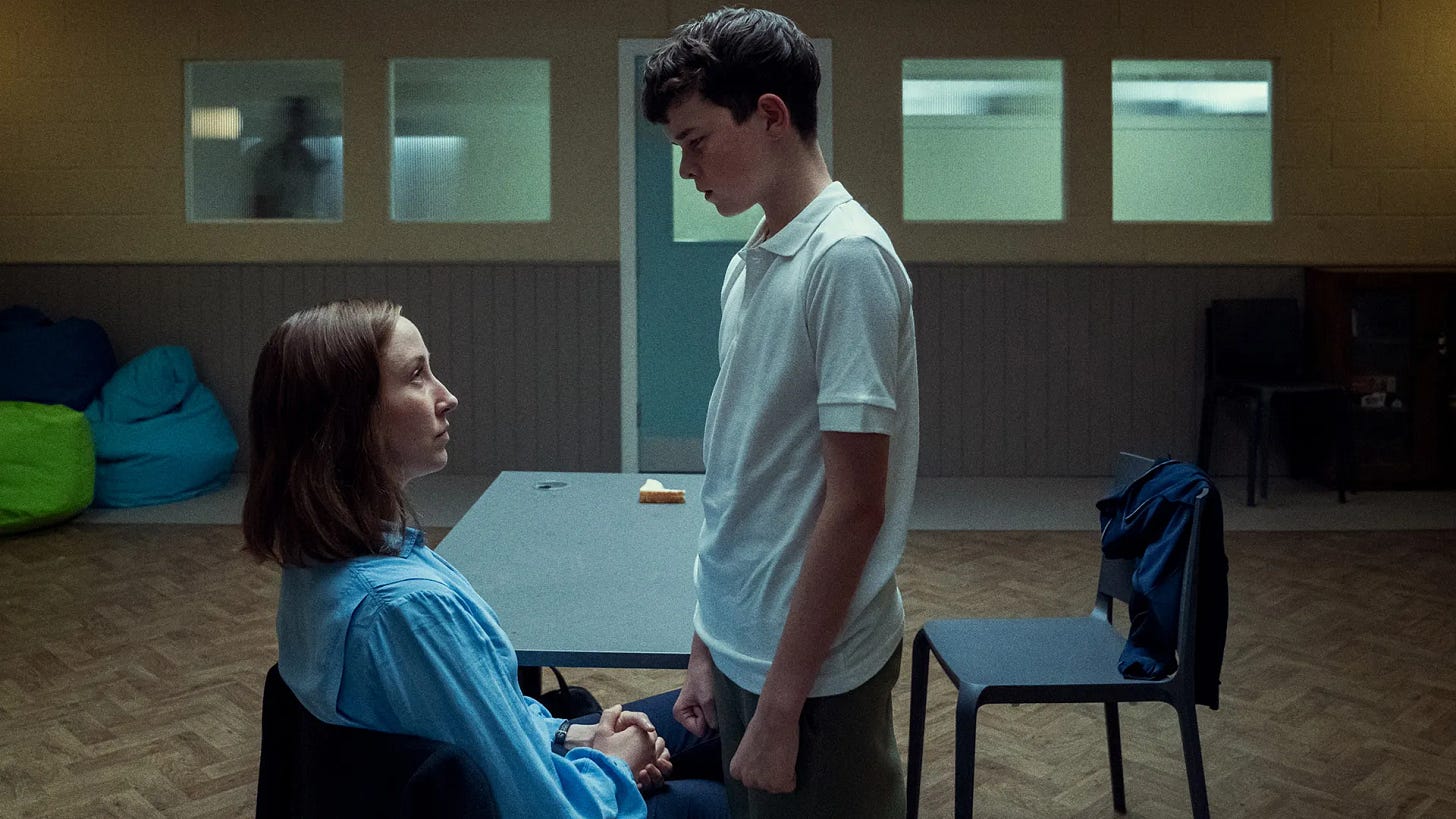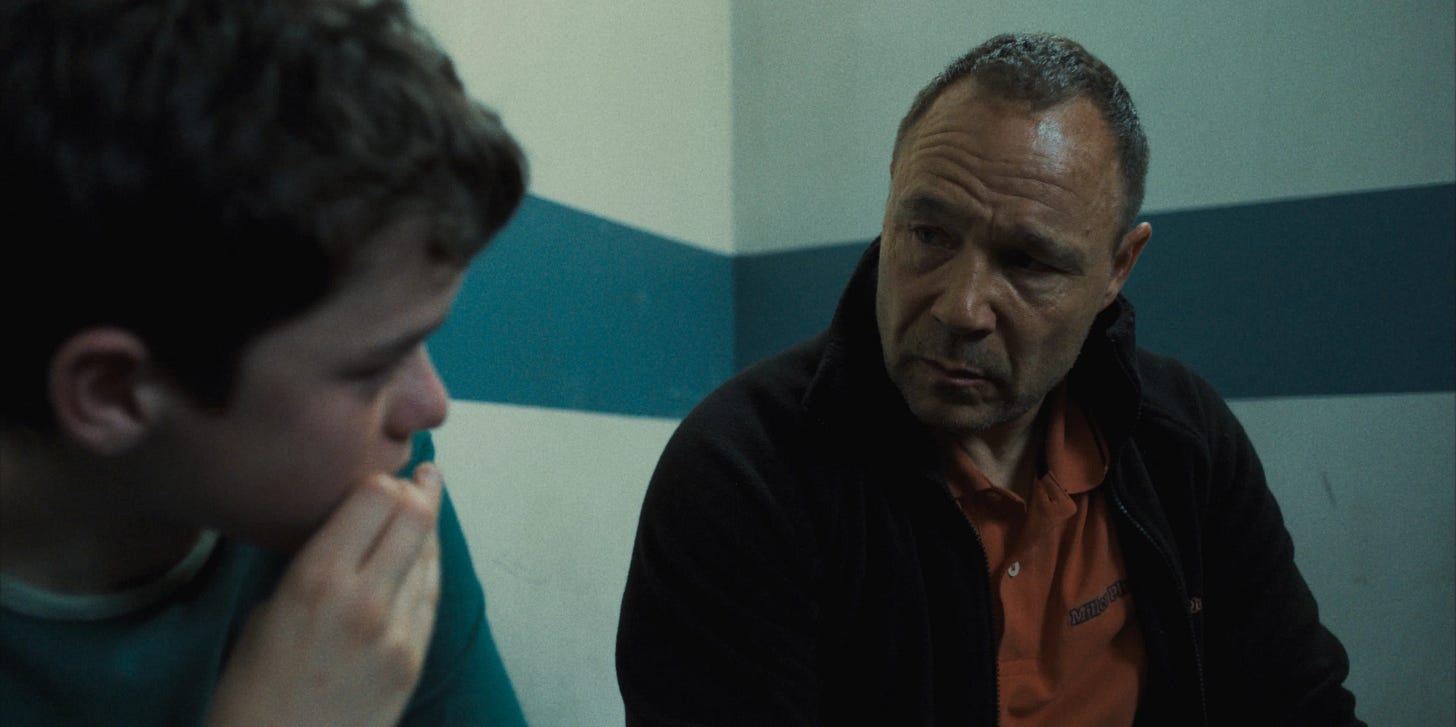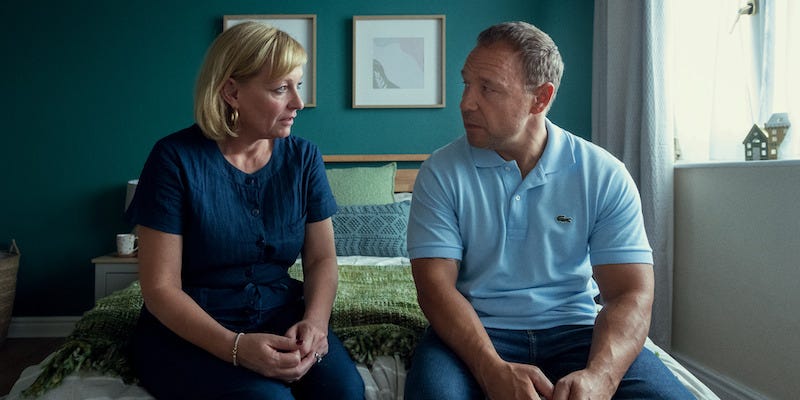Review: 'Adolescence'
A terrifying and heart-wrenching crime drama told in four unbroken takes.

It might be a bold claim, but Adolescence, the new Netflix crime drama from British director Philip Barantini, and written by Stephen Graham and Jack Thorne, might just be the most terrifying and heart-wrenching crime series I have ever seen.
It is also the most important.
This isn’t another true crime retelling about the lives and sins of American serial killers. Yet, it feels more real, more disturbing than any of those that have flooded streaming services in recent years.
Director Philip Barantini has developed something of a trademark in his storytelling: the one-take format. Sure, this isn’t a new concept—many films employ the technique for extended sequences or even entire movies (1917 being a well-known example). But those aren’t true one-takes; they’re long takes cleverly stitched together.
For Barantini, it’s different. His shots are truly unbroken, a continuous flow that keeps the tension high and the emotions raw. I first saw this at the Karlovy Vary International Film Festival in 2021, where Barantini premiered Boiling Point, starring Stephen Graham. I was on the FIPRESCI (International Federation of Film Critics) jury that year, and Boiling Point was my personal vote for Best Film in the so-called Crystal Globe Competition (I was outvoted by the two other jury members, though).
Now, Barantini is back with Adolescence, a four-part crime drama that goes straight for the heart.
The story begins in a working-class English suburb, where most houses look very much the same, and one day blends into the next. Families aren’t wealthy, but they get by, sending their kids to school each day, where overworked, nerve-wracked teachers do what they can to prepare them for the future.
But today will be different. Two police detectives sit in their car, chatting. They are Luke Bascombe (played by Ashley Walters) and Misha Frank (played by Faye Marsay). Then, a code comes through on the police radio—one of those strings of letters and numbers all officers instantly recognize as trouble.
There has been a murder.
They race off, soon joining several patrol cars converging on the same house. Black-clad, heavily armed officers start breaking down the front door. Within moments, the door is breached, and they move in, quickly subduing the terrified family.
Bascombe and Frank push through the chaos, heading straight for the bedroom of the frightened 13-year-old boy, Jamie Miller, who is charged with the murder of a local teenage girl.
Jamie is played masterfully by 15-year-old Owen Cooper, who had no other acting experience before this—which is, to be honest, absurd. His performance is pure, raw talent—both vulnerable and chilling.
All of this—every moment, every movement—is captured in a single, unbroken shot. And it's only the beginning. Each episode of Adolescence is set at a different point in time following the family's tragedy, yet each is told in real time through one continuous take—no tricks, no hidden edits disguised by a camera sweeping behind a wall or pillar like in other films. This is the real deal.
The story is told through four episodes. In the first, we follow the aforementioned arrest of Jamie, who is taken to the local police station for interrogation by Bascombe and Frank. Jamie's family, his father Eddie (played masterfully by Stephen Graham), his mother Manda (played by Christine Tremarco) and sister Lisa (played by Amelie Pease), all in shock, comes along.
In later episodes, we follow Bascombe and Frank's investigations in Jamie's school where they try to get a sense of what could motivate a 13-year-old boy to murder a young girl, and who others might be involved.
We also follow Jamie's chilling conversation with psychologist Briony Ariston (played by Erin Doherty) and the Miller family as they are trying to cope with the stress, trauma, and grief.
Four unbroken takes. Four shots. All of them impressive, with some camera movements going above and beyond what we're used to seeing in blockbusters with budgets 10-20 times higher. This is not just some gimmick, but a powerful effect to drag us, often kicking and screaming with tears running down our face, into the tragedy of the Miller family.
So is Jamie guilty? Did he do it? I won’t say, as like with any crime story, that would be a spoiler. But Adolescence is not just any crime story. In fact, the four episodes quickly move away from the genre to become something altogether unique, more like a drama, a family tragedy and an exploration of the surge of social media-driven toxic masculinity among young boys.
The series takes steady aim at these societal issues, delivering a subtle yet realistic exploration of how the so-called incel culture influences young boys, even down to pre-teen ages, fostering aggression towards women. These sentiments, fueled by lunatics such as the cult-like Tate brothers and amplified by figures like podcast host Joe Rogan, permeate the so-called manosphere.
Misunderstood ideas, such as the "80/20 theory" — that claims 80% of women are only interested in 20% of men — feed into the deep resentment many of these young boys develop. All of this reaches impressionable teenagers and children through social media apps like Instagram, normalizing misogyny and leading to bullying, threats, and even violence and death.
So why is this series so important?
As a father of two sons, now in their early 20s, I have witnessed first-hand the male toxicity that permeates certain social circles among teenage boys. While I was lucky enough to get my sons through it more or less unscathed, it's impossible not to see the effect this has on developing kids and teenagers.
For parents, with sons and daughters in this age, it is important to remember that our own upbringing was very different. The internet, social media, mobile phones in every pocket has led to a very different—and more dangerous—dynamic than we ever lived in. And it is this generation that will go on to form the core of our society.
So yes, this is important. This is critical. And, while the specific story here is fictional, with Adolescence, Philip Barantini, along with writers Stephen Graham and Jack Thorne, have given us a peek into a societal dynamic among young boys that will be very hard to forget.
Adolescence premiers on Netflix on March 13, 2025.






Your framing of “toxic manly" figures fails to match the layered complexity of the masterful piece it references. Why focus on blaming public figures without asking: What societal voids leave boys adrift? Condemnation is easy; building inclusive systems where vulnerability isn’t ridiculed is harder. Algorithms amplify toxicity, but the real rot starts earlier—in homes, schools, and communities that offer no compass. Dig deeper.